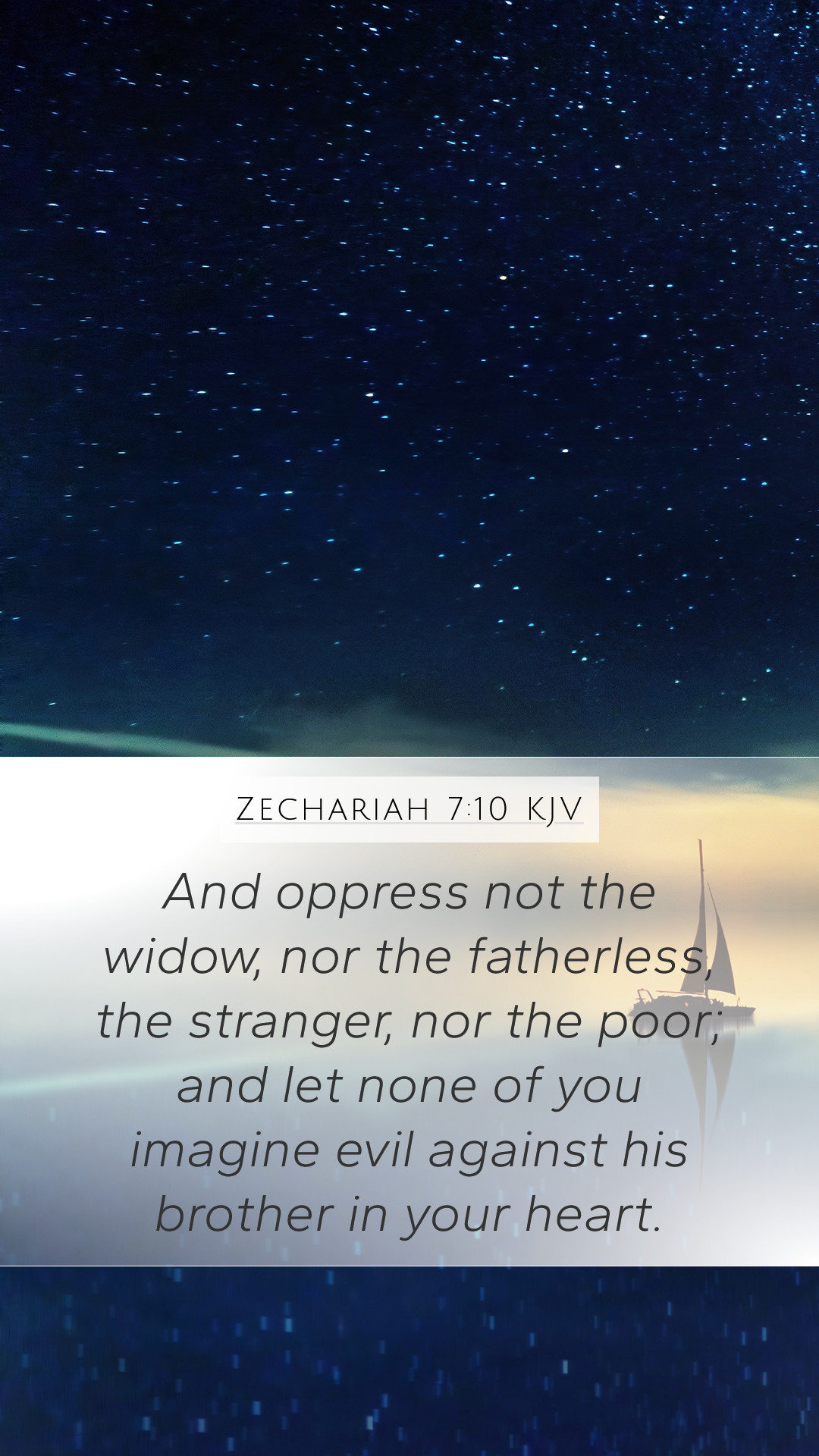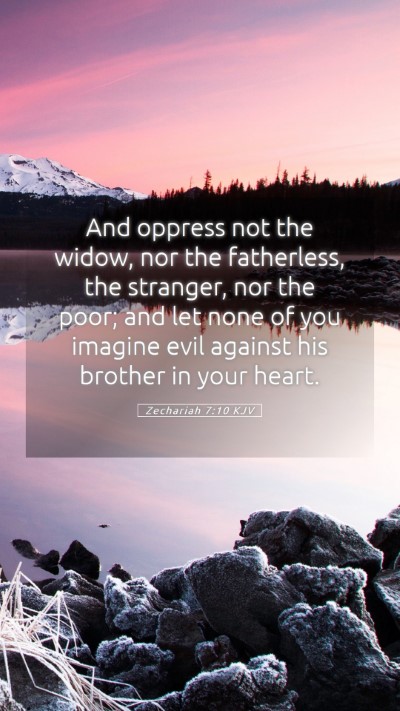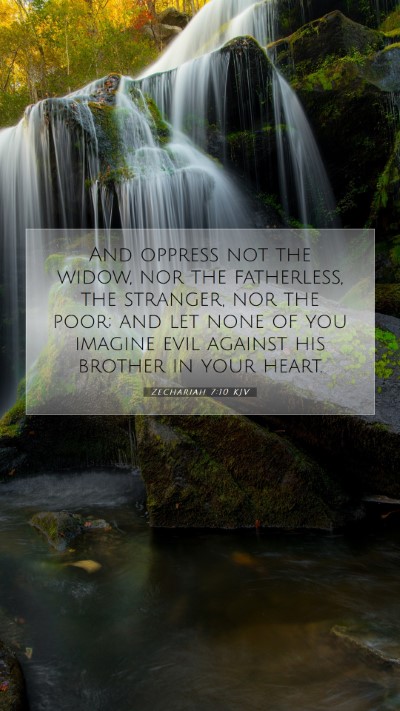Old Testament
Genesis Exodus Leviticus Numbers Deuteronomy Joshua Judges Ruth 1 Samuel 2 Samuel 1 Kings 2 Kings 1 Chronicles 2 Chronicles Ezra Nehemiah Esther Job Psalms Proverbs Ecclesiastes Song of Solomon Isaiah Jeremiah Lamentations Ezekiel Daniel Hosea Joel Amos Obadiah Jonah Micah Nahum Habakkuk Zephaniah Haggai Zechariah MalachiZechariah 7:10 Meaning
What is the meaning of Zechariah 7:10?
And oppress not the widow, nor the fatherless, the stranger, nor the poor; and let none of you imagine evil against his brother in your heart.
Zechariah 7:10 Bible Verse Meaning
Bible Verse Explanation: Zechariah 7:10
Zechariah 7:10 states: "And oppress not the widow, nor the fatherless, the stranger, nor the poor; and let none of you imagine evil against his brother in your heart."
This verse is a call to social justice and ethical conduct among the Israelites, emphasizing the importance of compassion and integrity in community relationships.
Meaning of Zechariah 7:10
The verse specifically instructs individuals not to oppress vulnerable members of society, such as widows, orphans, strangers (foreigners), and the poor. This aligns with the broader message found throughout Scripture regarding the treatment of marginalized people.
Commentary Insights
- Matthew Henry's Commentary:
Henry emphasizes that the exhortation to avoid oppressing the vulnerable is rooted in God's justice. He highlights that these groups of individuals deserve special care and protection, underscoring God's concern for those who have no advocate.
- Albert Barnes' Notes:
Barnes draws attention to the moral obligation to act righteously. He explains that "imagine evil" reflects not just action, but even thoughts that dishonor God’s law. The heart's intents are equally scrutinized, as they lead to actions.
- Adam Clarke's Commentary:
Clarke notes the cultural context, acknowledging that in ancient Israelite society, these vulnerable groups often faced exploitation. His commentary reinforces the necessity of fostering a community of support rather than one of oppression.
Biblical Exegesis and Understanding
This verse is an instructive part of Zechariah’s message calling for repentance and a return to ethical practices after the Babylonian exile. The emphasis on social justice reflects the divine character of God—He cares for the needy and expects His people to do likewise. This theme of compassion and integrity resonates across the Bible.
Application in Daily Life
Understanding Scripture, especially verses like Zechariah 7:10, calls for practical applications in today’s Christian life. Here are some ways individuals can implement this teaching:
- Engage in Community Service: Actively participate in helping or contributing to those in need, such as the poor and marginalized.
- Develop Awareness: Learn about the struggles faced by vulnerable populations in your community.
- Practice Kindness: Foster relationships based on trust, avoiding malice or ill intent toward others.
Related Bible Cross References
- Exodus 22:22 - "You shall not afflict any widow or orphan."
- Psalms 82:3 - "Defend the weak and the fatherless; uphold the cause of the poor and the oppressed."
- Proverbs 14:31 - "Whoever oppresses the poor shows contempt for their Maker, but whoever is kind to the needy honors God."
Conclusion
In conclusion, Zechariah 7:10 serves as a vital reminder of our responsibilities towards the vulnerable segments of society. Through Bible study insights and various interpretations, it encourages believers to reflect on their ethical obligations and engage in active compassion. Engaging with this verse not only enhances Bible verse understanding but also promotes social justice and integrity, thus aligning with the heart of God.
For more Bible verse meanings, Bible verse interpretations, and Bible commentary, consider deeper Bible study tools and guides.

